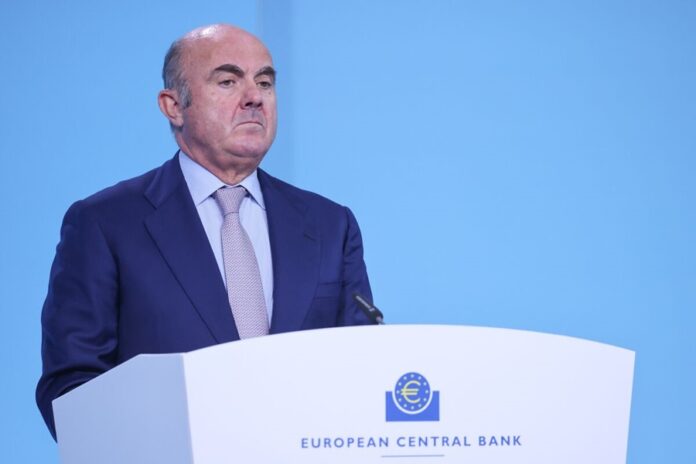The euro zone economy may have experienced a downturn at the end of last year and will probably continue to struggle, according to European Central Bank Vice President Luis de Guindos, according to Bloomberg.
“Soft indicators point to an economic contraction in December too, confirming the possibility of a technical recession in the second half of 2023,” Guindos said Wednesday in a speech. “Incoming data indicate that the future remains uncertain, and the prospects are tilted to the downside.”
Despite softer economic expansion and the first signs of a correction in the labor market, the strong retreat in inflation seen last year is likely to be less pronounced in 2024, he said.
“The rapid pace of disinflation that we observed in 2023 is likely to slow down in 2024, and to pause temporarily at the beginning of the year, as was the case in December,” Guindos told a conference in Madrid.
Investors and analysts have been anticipating a mild downturn for the 20-nation economy alongside a bumpy path back to the ECB’s 2% inflation target. They’ve recently been betting that reductions in interest rates will begin in the spring — sooner than most officials in Frankfurt have been signaling.
The ECB is loathe to declare victory prematurely over the surge in consumer prices, with growth picking up again to 2.9% from a year ago in December from 2.4%. It’s carefully studying wage developments that will take some months to become clear.
Governing Council member Francois Villeroy de Galhau reaffirmed Tuesday that the ECB is set to cut rates some time in 2024 — without giving specific guidance on timing.
Croatia’s Boris Vujcic said this week that any action before the summer is unlikely, though Portugal’s Mario Centeno said it’s unnecessary to wait for full clarity on salaries, insisting the ECB could move in the first half.


